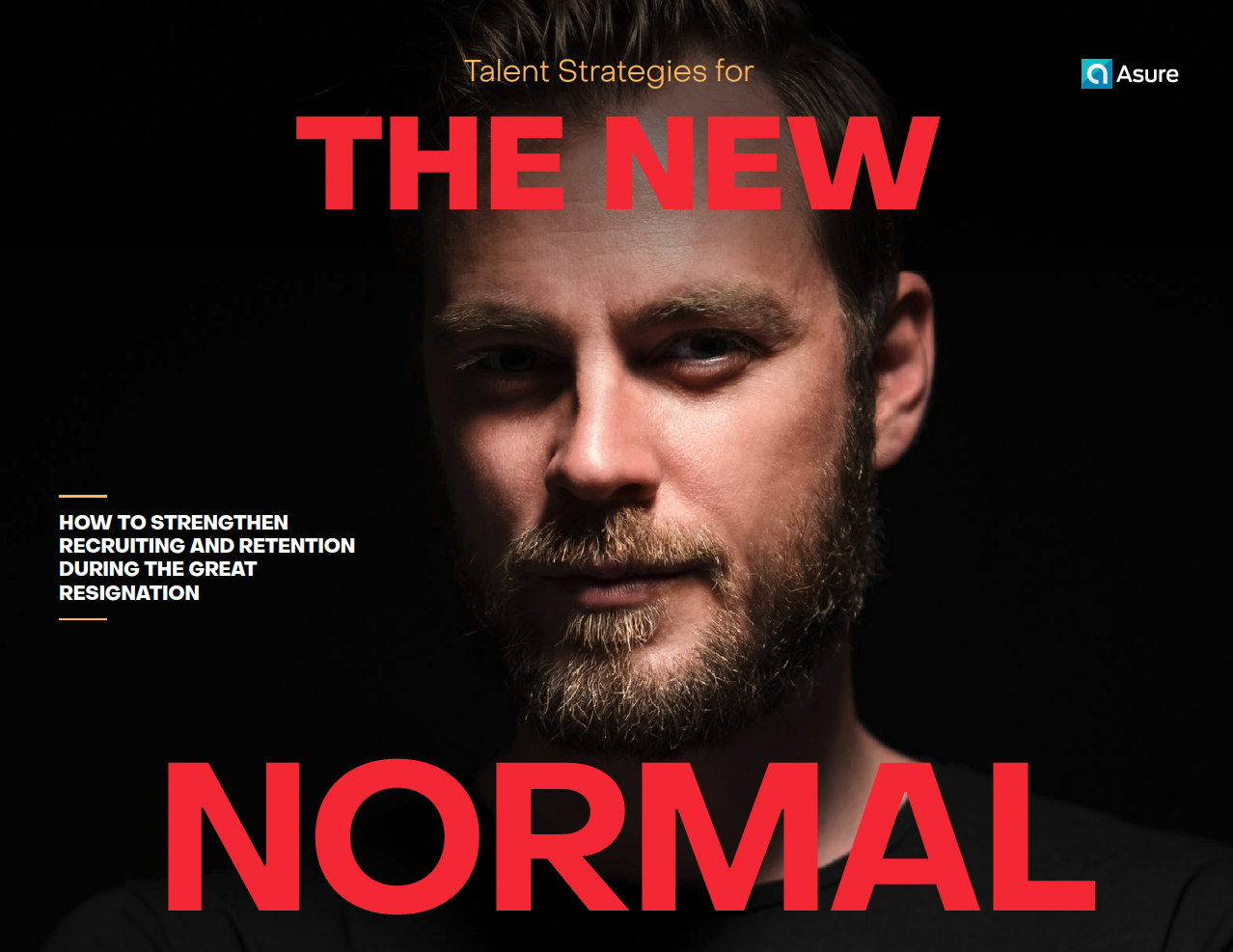As we discussed in our previous blog about the Great Resignation, employees are leaving jobs at an unprecedented rate. While reasons for quitting vary across generations and industries, one thing is clear: employees are looking for employers to do better.
The COVID-19 pandemic has elevated the importance of wellbeing, work/life balance, and company culture to employees. Now more than ever, employees want to work for a company that aligns with their values and demonstrates appreciation for employees’ time and efforts. Building a culture that supports wellbeing means paying attention to HR issues such as flexible work arrangements, workplace safety, pay, benefits, and more.
What employees say they want and need
New studies also show that job seekers want to work for organizations that align with their social views. One study found that 77% of consumers want to know what the brands they support are doing to address social and environmental issues. A recent Gartner survey supports the idea that if consumers are paying attention to social and environmental concerns, then so too are job seekers. In the Gartner survey, 75% of employees expect their employer to take a stance on current societal or cultural issues, even if there is no direct connection between the organization and that issue.
With more than 9 million job openings in the US, businesses of all sizes and various industries are having a hard time finding workers—especially amid the current turnover tsunami where analysts believe that 30 percent annual turnover could be the new norm. The COVID-19 pandemic gave workers time to reflect on their current work situation and what in their lives is most fulfilling. As a result, many forward-thinking organizations are putting more effort into building an intentional culture so they can use that “culture as a way to attract, engage, and retain the best talent”.
The growing importance of culture
According to past research by Deloitte, 94% of executives and 88% of employees believe strong company culture is important to business success. Some employees struggle to find value or meaning in their work without a strong culture, leading to negative impacts on engagement, productivity, and your bottom line. This survey was conducted prior to the COVID-19 pandemic and the workplace shutdowns that came with it.
In 2021, the importance of purpose in relation to the work experience and culture has been magnified. In fact, according to a recent McKinsey survey, nearly two-thirds of employees surveyed said that COVID-19 has caused them to reflect on their purpose in life. And Millennials were three times more likely than others to say they were reevaluating work.
How should we define purpose? And why should purpose matter to employers? In a recent Forbes article, contributor Tracy Brower explains purpose is “a belief that your life matters and that you can make a difference. It is a sense of being guided by meaningful values and goals…We will be most engaged in our work when the mission and goals of the organization also matter to us—and when we feel like we can make a contribution to the bigger picture.”
4 practical ways to infuse culture into talent management
There are many resources available to help guide your organization to both build and grow an intentional culture. It starts with defining your core values and identifying the organization’s purpose. There are different types of work culture your business can foster including a transparent work culture, values-based culture, or team culture. Whatever type you choose, it’s important to clearly define behaviors and expectations, communicate them, and lead by example.
These four steps can help your business build the right culture to attract and retain top talent:
-
Infuse culture into recruiting activities. Even scheduling delays for an interview during recruitment matters when you’re sourcing top talent. According to a recent survey, 77% of senior candidates say your recruitment process affects perception and 64% of candidates were less likely to engage or recommend you in the future. Don’t risk losing talent due to inefficient processes that put your brand in a bad light.
-
Find and grow talent based on these candidate traits. Look for highly motivated applicants—those that demonstrate interest in a particular field and commitment to learning and growing. Many leading businesses have success when they hire talent that is motivated, coachable, and organized and possess good time management and communication skills.
-
Build programs that reinforce your common purpose. Support and reinforce your organization’s common purpose by modeling great leadership, seeking employee feedback, rewarding pe
rformance, protecting employee safety, and fostering wellbeing. It’s also important to demonstrate purpose by giving back to your community through Corporate Social Responsibility initiatives. -
Provide training and support to drive success. It’s important to support your managers with the training and tools they need to exemplify and strengthen your organizational culture. After all, managers “influence your culture on a daily basis in what they support, promote, permit, and ignore.”
Take talent management to the next level
Growth-oriented businesses can bring in fully certified HR professionals to help with job or culture need assessments, recruitment, and onboarding. Fully outsourced HR is built for growing companies that haven’t yet built an in-house HR team or instead want to focus time and money on the core business. With a team of HR experts on your side, you’ll have access to tools, resources, and manpower needed to effectively build an intentional culture that attracts and retains the talent you need to grow your business.
Guide to the New Normal in the Wake of the Great Resignation
Asure created this guide to provide business leaders with ideas and insights about what’s driving the Great Resignation and how to respond. We examine key areas to focus on so your company can both attract great candidates and hold onto existing talent: workforce flexibility, employee mental health, employee experience and engagement, and technology. Download your free guide.


